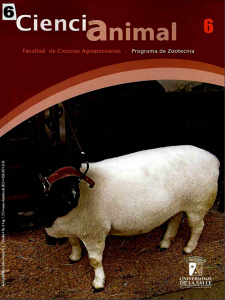Abstract
A sampling was carried out in Falan, Tolima, to estimate storage and carbon emissions of the main agricultural production systems, seeking to determine which were friendlier to the environment. Six treatments were established: cocoa monoculture, avocado plantain, cocoa avocado, cocoa plantain, corn monoculture and sugarcane monoculture. For this purpose, temporary sampling plots were built; data on diameter, total height and diameter at breast height was collected, and allometric models were implemented in order to determine the tC/ha of each treatment. Furthermore, greenhouse gas emissions generated by the implementation of nitrogen fertilizers were estimated, using IPCC emission factors. The treatment that sequestered carbon the most was cocoa monoculture (21.6 tC/ha/year), which was 19% higher when compared with other treatments. Most of the evaluated treatments have significant amounts of carbon emissions, but in the balance, the ones that had a positive impact were the cocoa, avocado-plantain and cacao-avocado treatments, which achieved a reduction of CO2 pollution. Corn and sugarcane, by contrast, had a negative balance, as they did not manage to sequester any nitrogen and they did release CO2 into the atmosphere. The implementation of agroforestry systems in the area generates a greater importance for ending air pollution, which represents an added value for farmers in the area and for future generations.Downloads
Download data is not yet available.



